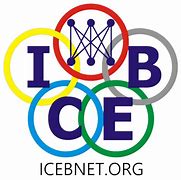Document Type
Abstract
Abstract
A little more than three years ago, political and economic analysts predicted an end to Hong Kong`s golden era as the financial capital of Asia. Three years on, and having rolled into the third millennium on a rising tide of dot.com and technology-led investment, Hong Kong has brushed off prophecies of doom and appears to be living to its hard-earned reputation for adaptability. The recent-signed joint ventures, such as the $1.6 billion Cyberport and Walt Disney projects are good evidence suggesting that Hong Kong`s power as the financial capital of Asia remains undiminished.
Perhaps the biggest problem faced by U.S. e-businesses and multinational firms, seeking to establish a foothold in a foreign market such as Hong Kong, is learning how to best treat individuals of the new market. This is because the cultural and ethical values of individuals can vary entirely from those of a multinational firm`s home country. Cultural and ethical differences can exercise tremendous effects on the form, content and consequences of business communications. Multinational firms face a continual imperative to struggle with these culturally-driven differences in how consumers will respond to a given business strategy.
This study is designed to examine the determinants of future Hong Kong and American leaders` attitudes toward various forms of unethical practices and detect any differences between them. Multiple regression analysis reveals that American individuals who are young, tolerant, and opportunistic tend to behave less ethically than do other Americans. In contrast, American individuals who are older, idealistic and theistic are more likely to behave ethically than do other Americans. Hong Kong individuals who are tolerant, and opportunistic tend to behave less ethically than do other Hong Kongers. In contrast, Hong Kong individuals who are positive and idealistic are more likely to behave ethically than do other Hong Kongers. Opportunism is found to be one of the most important determinants in explaining misconduct. MANOVA and MDA show that Hong Kong individuals use tolerance, experience, relativism, negativism, humanism, detachment, and nontheism more frequently than do people in the U.S.
Recommended Citation
Rawwas, Mohammed Y.A., "Business Ethics: A Cross-Cultural Study of Tomorrow's American and Hong Kong Business Leaders" (2001). ICEB 2001 Proceedings (Hong Kong, SAR China). 58.
https://aisel.aisnet.org/iceb2001/58
Abstract Only


